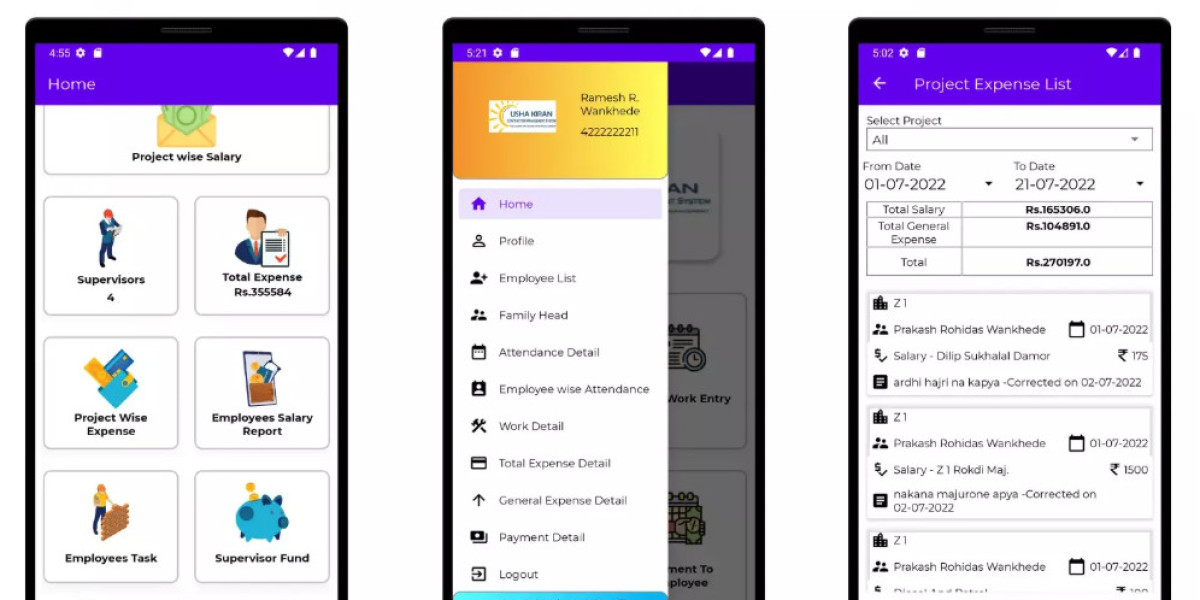The construction industry plays a significant role in Pakistan’s economic development, contributing to infrastructure, housing, and urban expansion. However, the sector faces numerous challenges, such as delays, cost overruns, resource mismanagement, and ineffective communication. These issues have made managing construction projects a complex task, often leading to inefficiencies. Fortunately, Construction Management Software in Pakistan has emerged as a powerful solution to address these challenges, helping construction companies in Pakistan streamline their operations, improve collaboration, and enhance project execution.
In this article, we will explore how CMS is transforming the construction industry in Pakistan, focusing on the features, advantages, and the challenges of implementing such software.
What is Construction Management Software?
Construction Management Software (CMS) is a digital tool designed to aid in the planning, coordination, and management of construction projects. These software platforms centralize all aspects of a construction project into a single system, including scheduling, budgeting, resource allocation, communication, and documentation. By using CMS, construction firms can reduce the risk of errors, enhance productivity, stay within budget, and ensure that projects are completed on time.
In Pakistan, the traditional approach to construction project management often involves multiple disconnected systems, which can lead to inefficiencies. CMS presents an opportunity to integrate all aspects of project management into one easy-to-use platform, improving overall project delivery.
Key Features of Construction Management Software
Project Scheduling and Timelines
One of the primary features of CMS is its ability to create and manage project schedules. Construction projects require careful planning to ensure that tasks are completed in a timely manner. CMS offers tools like Gantt charts, calendars, and task dependencies, allowing project managers to map out the entire project timeline. Real-time updates help teams stay on track and quickly adjust schedules if issues arise.Budgeting and Cost Tracking
Managing a construction project’s finances is often a challenging task. CMS tools assist with budget creation, cost estimation, and financial tracking. They provide project managers with the ability to track expenditures in real-time, compare actual costs against the budget, and adjust plans accordingly to avoid overruns. By improving cost control, CMS ensures that projects remain financially viable throughout their duration.Resource Allocation and Management
CMS helps construction teams efficiently manage resources such as materials, labor, and equipment. By tracking resource availability and utilization, project managers can ensure that the right resources are allocated at the right time. This minimizes idle time, reduces wastage, and improves overall project efficiency.Document Management and Version Control
Construction projects generate a large amount of documentation, including contracts, blueprints, change orders, and permits. CMS centralizes all project documents in one location, allowing for easy access, sharing, and version control. This reduces the risk of losing important files and ensures that all team members are working with the most up-to-date documents.Real-time Communication and Collaboration
Effective communication is crucial in construction projects, where multiple stakeholders are involved, including contractors, clients, suppliers, and subcontractors. CMS provides a centralized platform for communication, allowing teams to collaborate on tasks, share updates, and discuss issues in real time. This fosters greater transparency, reducing the chances of misunderstandings and delays.Progress Tracking and Reporting
CMS allows project managers to track the progress of construction projects by monitoring key metrics such as completed tasks, milestones, and deadlines. Automated reporting features provide project managers with real-time insights into the project’s status. This helps them identify potential issues early and take corrective actions to keep the project on track.Risk Management and Safety Compliance
Construction projects face numerous risks, ranging from safety hazards to delays caused by weather or regulatory issues. CMS includes risk management tools that help project managers identify, assess, and mitigate these risks. The software also ensures that safety protocols and industry standards are followed, minimizing the risk of accidents and compliance issues.Mobile Access and On-Site Management
CMS solutions are often mobile-compatible, allowing construction teams to access project details on-site using smartphones or tablets. This enables workers to update task progress, communicate with team members, and access important documents without needing to return to the office. Mobile capabilities ensure that the project remains well-managed, even when teams are spread across multiple job sites.
Advantages of Using Construction Management Software in Pakistan
Increased Efficiency and Productivity
One of the most significant benefits of CMS is the improvement in project efficiency. By automating various administrative tasks such as scheduling, budgeting, and reporting, CMS frees up time for project managers to focus on high-priority activities. This leads to more efficient project execution, faster decision-making, and ultimately, a higher-quality result.Cost Control and Budget Management
CMS allows construction companies to gain better control over their budgets. Real-time tracking of costs, labor, and material usage helps identify any deviations from the budget early on. This allows for quick corrective actions to avoid significant financial losses and ensures that projects stay within their financial boundaries.Improved Communication and Collaboration
In the construction industry, communication breakdowns can lead to significant delays and errors. CMS improves communication by offering a centralized platform for all stakeholders to communicate, share updates, and access the same information. This reduces misunderstandings and fosters greater collaboration between contractors, subcontractors, and clients.Better Resource Management
Resource allocation is a critical component of construction project success. CMS provides detailed insights into resource availability, ensuring that the right materials, labor, and equipment are in the right place at the right time. This prevents resource shortages, minimizes downtime, and improves overall project productivity.Transparency and Accountability
By centralizing data and offering clear visibility into every aspect of the project, CMS increases transparency and accountability. Project managers can easily track task assignments, deadlines, and progress, holding team members accountable for their responsibilities. This transparency also helps clients stay informed about project developments and fosters trust.Enhanced Risk Management
CMS offers tools for identifying and mitigating risks, including financial, safety, and regulatory risks. Early identification of risks allows project managers to develop strategies to address potential issues before they become major obstacles. This proactive approach reduces the likelihood of delays and ensures smoother project execution.Improved Quality Control
Construction projects must adhere to strict quality standards and regulations. CMS allows teams to monitor quality control throughout the project, ensuring that work meets industry standards and that any issues are flagged early. By maintaining quality standards, CMS helps ensure that projects are completed to a high level of satisfaction.
Challenges of Adopting Construction Management Software in Pakistan
Initial Costs and Investment
While the benefits of CMS are substantial, the initial investment required for purchasing software, training employees, and integrating the system into existing processes can be a significant hurdle for many construction companies, especially small and medium-sized businesses in Pakistan.Skill Gaps and Training Needs
To successfully implement CMS, construction companies need a workforce with the technical skills to navigate the software. In Pakistan, there may be a shortage of skilled workers with the expertise to use these tools effectively. Companies must invest in training programs to ensure their teams are well-prepared to adopt CMS.Resistance to Change
Many construction firms in Pakistan still rely on traditional methods for managing projects. Transitioning to digital tools may meet resistance from employees who are accustomed to old processes. Overcoming this resistance requires strong leadership, clear communication about the benefits of CMS, and proper change management strategies.Infrastructure and Connectivity Issues
In remote areas of Pakistan, internet access and infrastructure can be unreliable, which could hinder the use of cloud-based CMS solutions. Construction companies working in these regions may face challenges in accessing project data and updating information on-site. Ensuring reliable internet connectivity is essential for the smooth operation of CMS.
The Future of Construction Management Software in Pakistan
The future of CMS in Pakistan is bright. As construction firms recognize the need for modernization and efficiency, the adoption of CMS is expected to grow. The software will continue to evolve, incorporating artificial intelligence (AI), machine learning, and automation to enhance decision-making and optimize project management. As the construction industry in Pakistan embraces these technological advancements, CMS will become an essential tool for ensuring the success of construction projects across the country.
Conclusion
Construction Management Software is a vital tool for addressing the inefficiencies and challenges faced by the construction industry in Pakistan. By streamlining project scheduling, budgeting, resource management, and communication, CMS improves productivity, reduces costs, and enhances project outcomes. While challenges like initial costs, skill gaps, and resistance to change exist, the long-term benefits of CMS in driving better construction practices, improving financial control, and ensuring smoother project execution are undeniable. As the industry continues to modernize, CMS will play an increasingly important role in shaping the future of construction in Pakistan.








